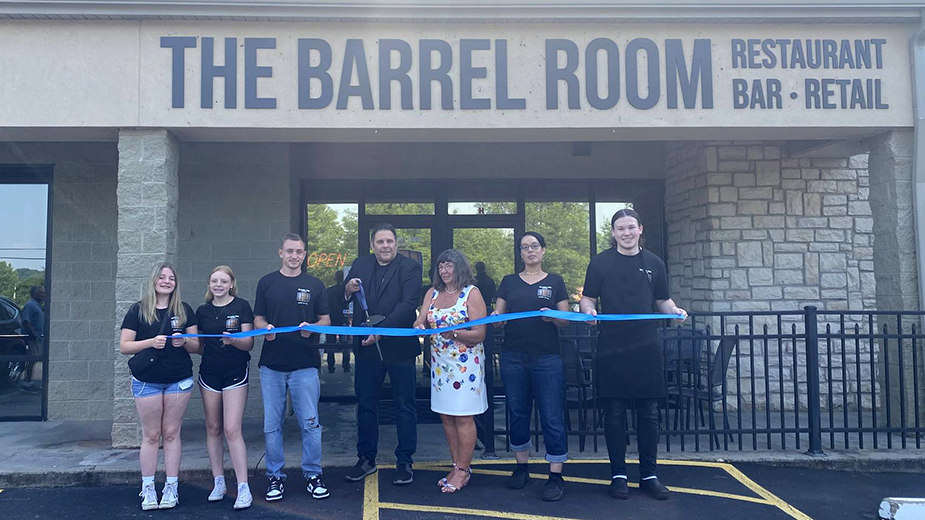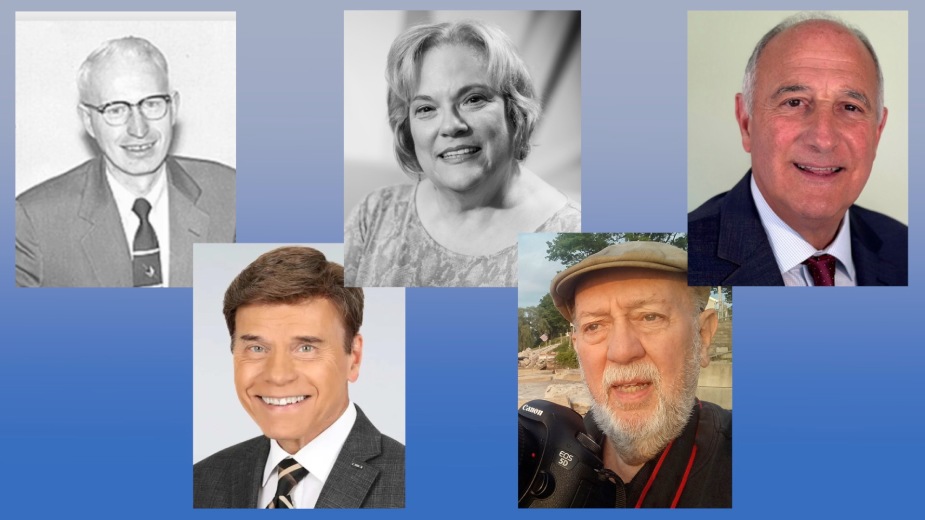Commentary: Grace and Abrams Talk True Crime
By Pat Springer
YOUNGSTOWN, Ohio – “Law & Order” is my addiction. I have seen all 456 episodes from its 20-year run at least once and many three times or more. It was no surprise then that I sat in the audience at Stambaugh Auditorium March 19 to hear two of broadcast’s most famous legal journalists, Nancy Grace and Dan Abrams, talk about crime and punishment.
Both YSU Skeggs Lecture speakers arrived with impressive credentials. Grace, a former prosecutor, an initial personality on Court TV and an advocate for victims’ rights, displayed her outspoken style as she bantered with Abrams about today’s most high profile court cases. Abrams, reporter for the OJ Simpson trial on Court TV, former Nightline anchor and chief legal correspondent for NBC News, brought his more reserved commentary and insight to the pairing.
Both were surprised to discover days before the program that it would include no moderator and spent time leading up to the lecture discussing via text a list of topics for discussion. Generally, it was an evening of pop culture insight with both adopting their television personas.
Grace was outspoken and wore her heart on her sleeve; Abrams was more reserved and even, at times, looked bored. No comments on any high profile political cases featuring Michael Cohen, Paul Manafort or Roger Stone were anywhere on the agenda.
Grace introduced the hour with a personal story she related to the current college cheating scandal. She questioned the wisdom of instructing her young sons to work hard for the next eight years to become Eagle scouts, improving their admission chances into a good university, when she could just write a check. She declared that the cheating, which involved cutting corners and providing access to opportunities for the rich, strikes a chord with the average citizen. Whether the guilty parties spent $15,000, as Felicity Huffman did, or $500,000, as Lori Laughlin did, the numbers – although usually important in a fraud case – should not matter. Cheating is cheating. It’s breaking the law and both parties should be sent to jail, she declared.
Abrams countered with his view that three ways exist to enter college: through the front door by applying legitimately, through the back door with the purchase of a building or through the side door by cheating.
He argued that the figures in this fraud case do matter and that although the crime is the same, the amount of money is not. He hoped that not everyone will be lumped together.
The conversation then moved to the saga of Jussie Smollett, the “Empire” star who claimed he had been attacked by two men who yelled homophobic and racial slurs, as well as “This is MAGA country.” After an investigation by Chicago Police, Smollet was arrested and charged with 16 counts of false report of offense, to which he pleaded not guilty.
Abrams claimed that after more of the facts were revealed, the case became less about them and more about the process. He somewhat jokingly asked the audience how many MAGA [Make America Great Again, the slogan of President Donald Trump’s 2016 campaign] supporters did Smollett think watched the crime drama Empire? “Probably not a huge crowd!” he responded. He added that if Smollett is smart, he will plead guilty for reduced jail time, appear on television to claim some kind of mental defect, offer to make reparations and then move on with his life.
Grace claimed that, despite the public motive of his wanting a higher salary on the show, she thought it was also about seeking attention.
Both were incredulous about the length of time it took the legal system to arrive at its present state with R&B singer R Kelly. Claiming that the situation had been going on for almost 20 years, they cited the three previous legal cases that had either been dismissed or had resulted in his acquittal.
The first was a civil suit that was settled out of court with a confidentiality agreement attached so no case elements were disclosed. The second occurred in 2002 when digital photos of a sexual nature with an underage girl were discovered on his camera. This case was dismissed. The third case, involving a sexual video, took six years to go to trial, and when prosecutors were unable to prove the identities of both Kelly and the underage girl on the tape, he was acquitted.
Abrams claimed the current media coverage, including the Lifetime documentary, “Surviving R. Kelly,” and an influential Buzzfeed article, has made a big difference in today’s renewed pursuit and interest.
Citing the recent airing of HBO’s “Finding Neverland” documentary, which focuses Michael Jackson’s alleged sexual assault allegations, Grace declared that when his trial first occurred (he was acquitted), she received hate mail and death threats.
Believing not only in his guilt but also in his probable acquittal, she referred to actor Macaulay Culkin’s testimony that he was not abused as one of the prominent factors.
Grace also touched briefly on the not guilty verdict for Casey Anthony, the woman accused of murdering her daughter (Grace believes she did do it) while Abrams provided a reply to a question on the Fairness Doctrine.
The Fairness Doctrine was a federal law from 1949 to 1987 which required broadcast licensees (television, radio stations) to present issues of public importance, as determined by the Federal Communications Commission in a balanced, equitable and honest way. Its creation occurred when only three dominant networks – ABC, CBS and NBC – ruled the airwaves.
Abrams clarified that the rule never pertained to cable.
“We’re in a different world now,” he said. “Media is so fractured but there is a place for everybody.”
I’m glad that there is still a place in reruns for fictional district attorneys Ben Stone and Jack McCoy. I think I’ll stick with them.
Copyright 2024 The Business Journal, Youngstown, Ohio.



